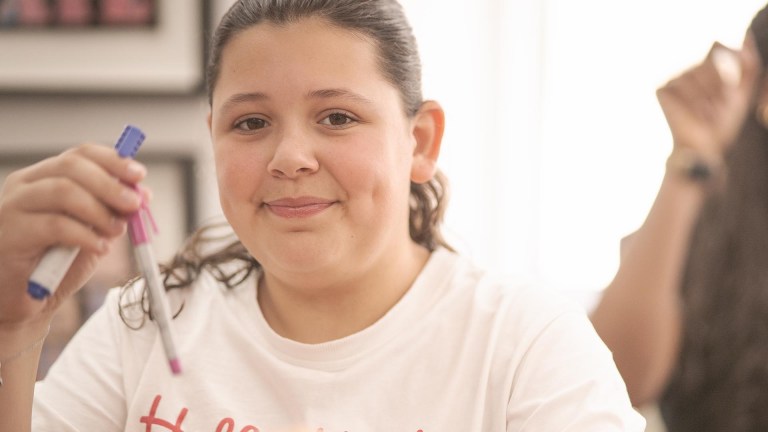So she began attending digital support sessions held in the community centre of Pembury Estate. When she arrived, she told centre manager Yola: “I want to be able to do these things for myself now. I have been asking people for too long. But I don’t know how to start.”
Quickly becoming a regular at the sessions, Evelyn learned how to use email, search for the information she wants online and grew less intimidated by online forms. She received a tablet through her local council’s digital inclusion programme to ensure she could start using her newfound skills independently.
And during the cost of living crisis, being able to search out and compare costs has, she says, been “invaluable”. She no longer feels in the dark about support schemes and benefits she could be entitled to, and feels more connected to the world around her. It has made a huge difference.
Experts urge those facing similar problems to seek support. “Financial worries make it even tougher to afford internet access for people who were already struggling before the crisis,” explains Helen Milner, group CEO for Good Things Foundation, which works with thousands of homelessness charities and community centres and also provides grassroots groups with devices and free data.
Where to get help
- If you need help to access or use the internet, call or visit local support services like Citizens Advice, which can let you know about digital inclusion schemes run by your council
Digital inclusion at The Big Issue
Big Issue vendors are among those more likely to be digitally excluded. That’s why Big Issue Group is working to cut digital inequity.
Ramping up rapidly as a result of Covid, our cashless programme saw more than 1,000 vendors across the country given card readers and training. Now, in collaboration with Citi Foundation, the Connect scheme aims to help 200 vendors develop essential digital skills by November this year.
Vendors take part in short coaching sessions – designed for all levels of confidence and literacy – covering topics such as using a smart device securely and managing apps.
The scheme works alongside the Financial and Digital Toolkit created in collaboration with vendors and frontline teams, which has been funded by Experian. Created by Big Issue frontline support and outreach teams, with support from charities and organisations including Good Things Foundation, the toolkit helps vendors get to grips with what the digital world has to offer, as well as guiding them through things like online banking and budgeting – essential skills for Big Issue vendors who manage their own magazine sales every week. Vendors have also been able to manage benefits like universal credit better, access money-saving offers only available online and apply for work. But some of the simplest parts of technology make the biggest difference, said Laurie Oliva, director of service development for the Big Issue Foundation. She recalls a vendor with low literacy who struggled to stay in touch with family by text who then learned how to use voice notes.
“Suddenly, his world opened up,” Oliva said. “Perhaps my favourite story of Connect so far, though, is that to show a vendor how to use apps, one of our team downloaded a music streaming app as an example and set them up with a free account.
“This led to many other requests from vendors in the area to have the app added, and a perfect chance to deliver some on-the-spot digital skills training while connecting vendors to the joy of unlimited music.”










